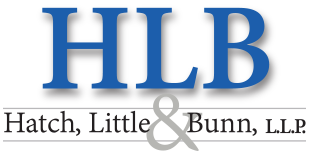What You Need to Know About Criminal Trial Procedures in North Carolina
Skilled Raleigh criminal defense lawyers keep you informed
After you have been arrested for a misdemeanor or felony, you should understand how criminal trial procedures work in North Carolina so you can make educated decisions about your case. At Hatch, Little & Bunn, LLP, we keep you informed at every step in your cases and provide you with exceptional legal guidance. Our Raleigh attorneys are respected legal advocates who help you fight against the tactics of prosecutors and law enforcement officers who want nothing more than to prove your guilt. For a criminal defense lawyer who is dedicated to protecting your rights and best interests, place your trust in our firm.
How the process works in a jury trial
You should immediately speak with an attorney to help you understand the charges against you and the steps you should take moving forward. If your case will go to trial, the general steps associated with this process include the following:
- Type of trial — Although in most situations the defense decides whether to seek a trial by judge or by jury, the prosecution also has the right to request a jury trial. Cases involving felonies usually have 12-person juries, while trials for misdemeanor crimes may have as few as six.
- Jury selection — Both the defense lawyer and prosecutor have an opportunity to meet with potential jury members, asking them questions approved by the judge. The attorneys and prosecutors may request to have certain members of the jury pool omitted from the jury.
- Evidence issues — Both sides may request to have certain pieces of evidence included or excluded from the case. Through a motion called in limine, your attorney may argue that certain items should be inadmissible as evidence.
- Opening statements — Once the trial officially begins, the criminal defense attorney and prosecutor each make an opening statement to the judge or jury. These statements summarize each side’s take on the case and how they will prove their arguments.
- Cross-examination — Both sides have the right to call witnesses to the stand in the trial. However, the prosecution has the right to cross-examine any witnesses the defense calls, including the defendant.
- Closing arguments — After the evidence has been presented and the witnesses have testified, the prosecution and defense both make closing statements. The defense typically rests its case after this.
- Deliberation — The judge provides instructions to the jury, and its members retire to a chamber to deliberate the case. The jury must come back with a unanimous decision to find the defendant guilty or not guilty.
- Post-trial motions — If a jury finds the defendant guilty, the defense lawyer commonly moves that the judge disregard the decision and issue an acquittal.
- Sentencing — In most situations, the judge accepts the decision of the jury. If the jury has found the defendant guilty, the judge issues a sentence based on state or federal law. This may include incarceration, fines, probation and/or community service.
- Appeals — The losing side in a jury trial has the right to appeal the ruling, typically arguing that certain evidence should have been thrown out or that some witness testimony was unreliable. If successful, the defendant may be awarded a new trial.
Although this is how the process works in general, there are also numerous issues and motions that need to be addressed throughout a criminal trial. Be sure to work with an experienced criminal defense lawyer to best protect your rights, whether you are facing charges for a drug crime, DUI, theft, domestic violence or another serious crime.
Consult a knowledgeable criminal defense attorney today
If you are facing serious criminal charges in North Carolina, do not hesitate to contact the team at Hatch, Little & Bunn, LLP for the guidance and advice you need. Our knowledgeable criminal defense lawyers serve clients in Raleigh, Durham, Chapel Hill, Wake County and the surrounding communities. Schedule a consultation today by calling 919-670-1411 or emailing us.


